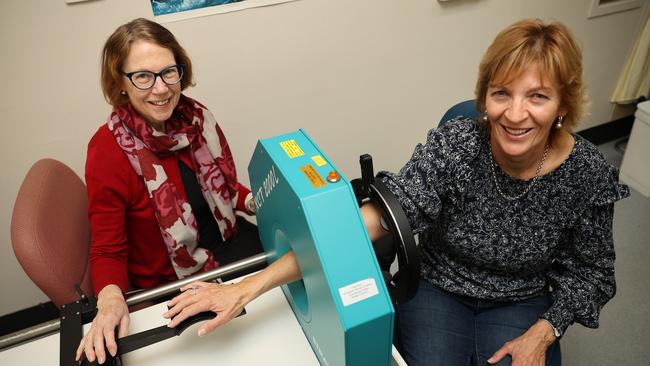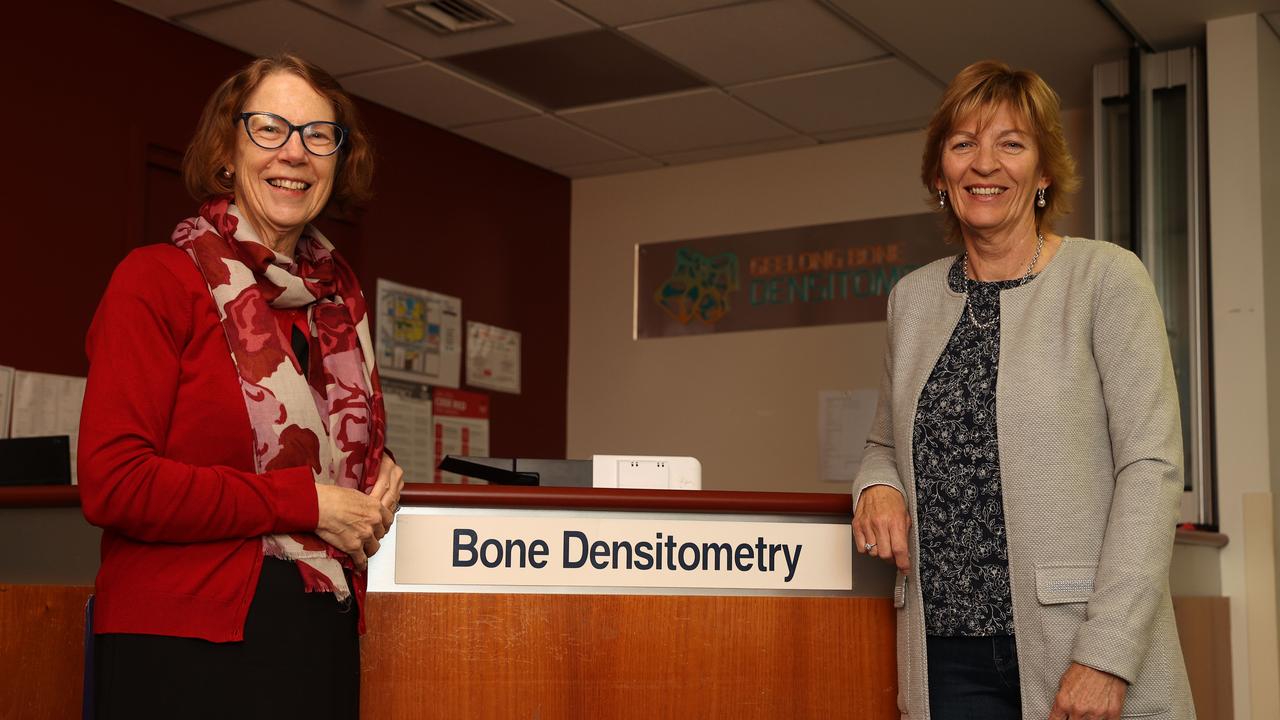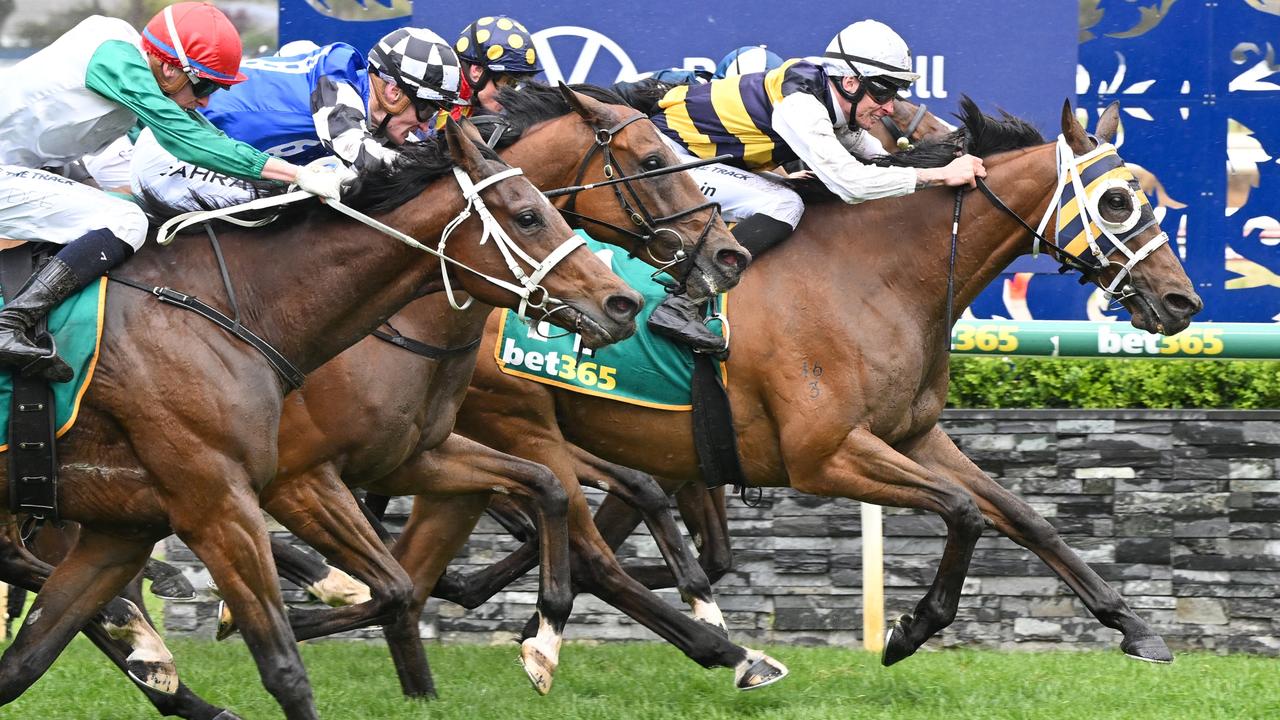Geelong Osteoporosis Study by Deakin University hits 30 years milestone
A Torquay grandmother is one of thousands of locals who have taken part in a Geelong health study spanning 30 years exploring how we can age better. Read what it’s found.

Geelong
Don't miss out on the headlines from Geelong. Followed categories will be added to My News.
Rhonda Gambetta hopes her family will reap the rewards of her decision to take part in a health study on how to age better about 30 years ago.
The 62-year-old from Torquay is a part of Deakin University’s Geelong Osteoporosis Study, which is one of the only large population-based cohort projects in Australia documenting how our bodies age.
Ms Gambetta enrolled in the study in 1994 after she received a letter in the mail about the research.
“I thought it was a good idea,” she said.
“I’m quite an active person and I have a science background so I’m interested in any kind of health study.”
Ms Gambetta would check-in with the researchers every two years for first 10 years, with further follow up tests at 15 years and 25 years.
She is the 300th female participant to have had her 25 year check-in, marking the milestone on Friday.
Ms Gambetta said she underwent a non-invasive bone density scan at Geelong hospital and completed a survey about her diet, exercise, lifestyle and mental health.
She hoped any findings from the study could one day help her two children and three grandchildren.
“If they can find out something that will help my children or grandchildren live a longer life, that would be a wonderful thing,” Ms Gambetta said.
Professor Julie Pasco from Deakin’s School of Medicine said the data collected during the study helped to build a better understanding of how our minds and bodies aged and lifestyle factors that promoted healthy ageing.
Key findings from the study during its 30 years were the importance of weight or resistance in maintaining bone and muscle strength.
“Sedentary lifestyles, excessive weight and high alcohol use accelerate bone and muscle wasting,” Prof Pascoe said.

“We also now know that our bones and muscles aren’t working in isolation but actively play a role in overall cardiometabolic health.
“Getting adequate sleep, not smoking, managing existing health conditions, avoiding unnecessary and overuse of medications and maintaining social connections are all important factors to optimise health and wellbeing into older age.”
Prof Pascoe said it was also important for people to reduce their stress levels in order to age better.
The study began recruiting women from Geelong between 1993 and 1997 while male recruitment began in 2001.
Prof Pascoe said the data collected was used both nationally and internationally.
“We couldn’t have achieved this without the commitment and enthusiasm of our participants, many who joined the study in their 20s and are now in their 50s,” she said.
More Coverage
Originally published as Geelong Osteoporosis Study by Deakin University hits 30 years milestone





